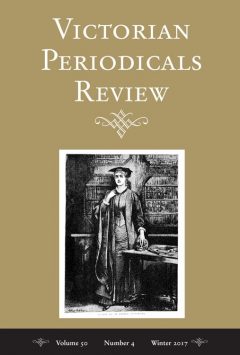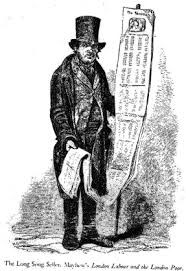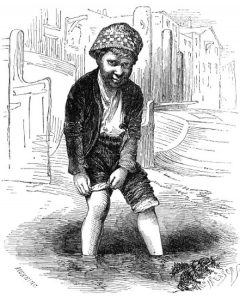Prof. Jan Schroeder recently guest edited a special issue of Victorian Periodicals Review devoted to the topic of education and the Victorian press (vol. 50, no. 4, 2017). In addition to her introduction, the issue featured contributions by seven scholars on topics such as periodicals for schools in nineteenth-century Australia; the global circulation of Broughamite educational literature, and the significance of spelling reform for the Victorian periodical press. Johns Hopkins University Press interviewed her this winter about the issue for their blog. You can read it here.
With Prof. Barbara Leckie, Prof. Schroder is also in the final stages of a multi-year editing project that mushroomed into several related endeavours. Profs. Leckie and Schroeder have this to say about the project:
“Our manuscript for a new scholarly edition of Henry Mayhew’s mid-Victorian social survey, London Labour and the London Poor, is nearly ready to send to the publisher, Broadview Press. Mayhew’s massive multi-volume study innovated the technique of interviewing the poor to gain a better understanding of their daily lives, their struggles to survive in a rapidly changing industrialized economy and expanding urban environment, and their passions, tastes, and idiosyncratic foibles. Mayhew combined these interviews with statistics, scholarly works on political economy and urbanization, general commentary, and illustrations. The result is dazzling and energetic picture of London’s urban poor in the mid-nineteenth century that—with its snake-swallowers, rat-catchers, coal-heavers, ballad-writers, and nutmeg-grater sellers—remains compelling reading today. Although there are other scholarly editions of Mayhew’s text, ours will be the first to emphasize what we think are two of its most important yet under-appreciated features: its print culture history and Mayhew’s ecological lens.”
In the context of this research project, Profs. Lecker and Schroeder have led three graduate seminars engaged in experiential learning. Some of the research students conducted for their course assignments will be incorporated into the scholarly apparatus of their scholarly edition (these students will be credited as contributors). One student, Jenna Herdman, was so inspired by the course that she is now producing a SSHRC-funded digital scholarly edition of the text for her doctorate, in which she will explore questions of remediation and archive.


